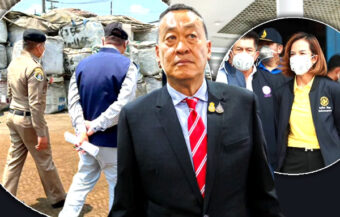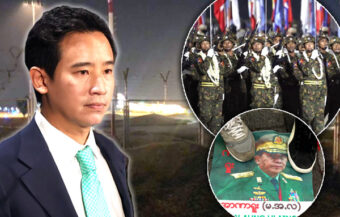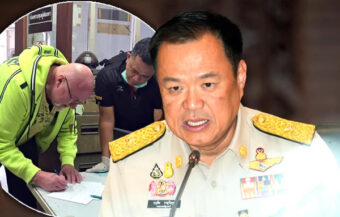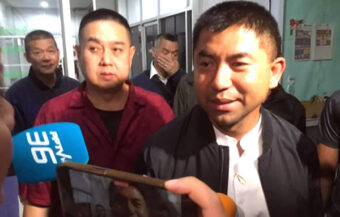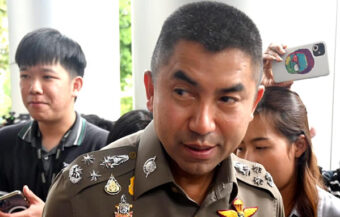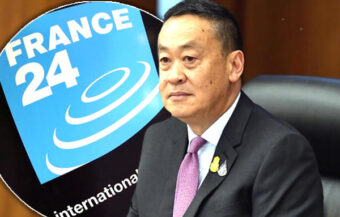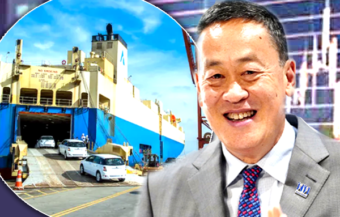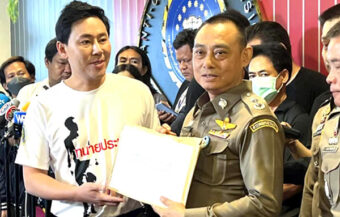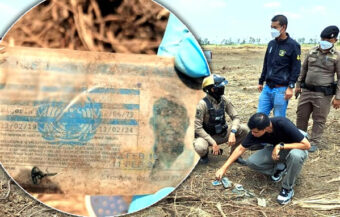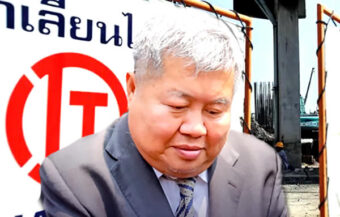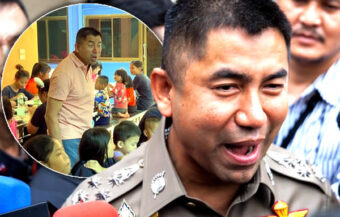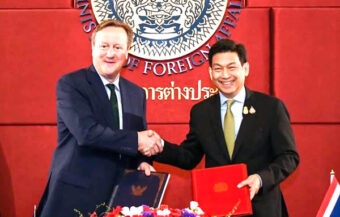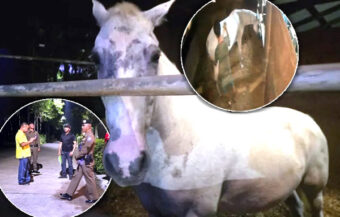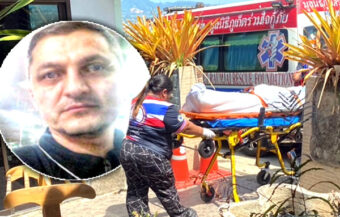This crisis, far from petering out, seems to be entering a renewed stage of life with increasing economic consequences and human suffering. While the public in Thailand and western countries fully support strong government action to defeat the virus, it is time to put the costs in perspective particularly when it comes to human rights and the expanding economic context and impact. Contrary to media hype, this is not the biggest medical threat since 1918 but a similar outbreak to the flu pandemics, also all originating in China, seen in 1957/1958 and 1968/1969, both of which killed more people worldwide and which the world took in its stride according to a May 2020 report in The Lancet, the respected UK medical journal.
Tens of thousands of western foreigners are running out of money and options after they have been trapped in Thailand or neighbouring countries because of tough coronavirus measures to fight off the pandemic taken in their home countries and Thailand. The situation has led to serious concerns that the human rights of these individuals are being laid low as government’s scramble to respond to what they see as a higher imperative to win a war declared on this virus outbreak by medical experts around the world.
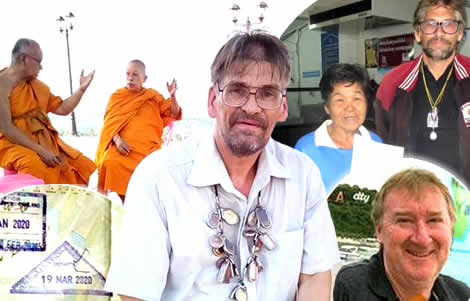
The escalating impact of the coronavirus has impacted nearly everyone worldwide especially those in the western world whose normal and relatively comfortable lifestyles have been disrupted in an unprecedented manner.
Among those who have been hardest hit by this virus are international travellers and particularly a group or community which has treated Thailand as a second home over the last twenty or thirty years.
The unexpected decision by the Thai government to extend an ongoing visa amnesty, last week, came as a surprise to many senior immigration officials and is believed to have been driven by the practical situation on the ground in Thailand, right now, where a large number of foreigners simply cannot leave the kingdom.
Hundreds of thousands of foreigners cannot find a way home in an increasingly desperate situation
Hundreds of thousands of foreigners cannot find a flight to go home at this time having had to fund themselves since the end of March this year when Thailand’s borders were closed without notice as the State of Emergency was declared.
The plight of foreigners also stranded outside Thailand’s borders and their efforts to be reunited with family has been gradually addressed by the Thai government and the Ministry of Foreign Affairs but the story of western foreigners left stranded within Thailand and in neighbouring countries, such as Laos, is one which is increasingly now calling out for urgent action.
Australian tourists and visitors in Thailand stranded between two worlds as their government limits returnees to 6,000 per week
Among those stranded in Thailand are many Australian nationals who have wives and extended families in Thailand. Many are offshore workers who have homes in both countries and divide their time between the two.
Living in Thailand or maintaining a relationship with the kingdom has become a hugely popular lifestyle choice in the last thirty years among millions of western men. This cohort forms a significant core of Thailand’s once-thriving foreign tourism industry and is also a key driver of inward investment into the kingdom.
The problem for many Aussies, right now, is that the Australian government with its measures to curb the virus, has imposed strict limits on flights landing in Australia.
The virus is seen by most governments as being linked in no small way to air travel.
Despite a recent increase in the number of people allowed to return to down under from 4,000 to 6,000 per week, it is currently reported that flights from Thailand to Australia are booked out until the early part of 2021.
Amnesty International raises the alarm
The situation has drawn the fire of Amnesty International in Australia, this week, which has called on Australian authorities to abolish the limits on nationals being allowed to return to the country.
‘To get Australians home, the Federal Government needs to raise the caps they have in place that are preventing people from coming home,’Joel Clark of Amnesty International in Australia warned. ‘By raising it above the current arbitrary cap of 6,000 people returning per week, the government could have these people home in no time.’
Despite all of this, surveys and polls taken in western countries and Thailand, all consistently show that between 70 and 75% of the population fully support stringent measures taken by their governments against the virus to save lives even as human rights activists begin to voice a growing alarm.
Thailand’s medical experts, like others worldwide, are intent on defeating this virus and winning the war against the threat to life at all costs
Thailand, like other countries, has seen medical task forces and experts lead the way in dictating government policy which aims to defeat the virus and halt its spread.
Policies designed to let the virus take its course such as that advised at the outset to the UK government and which has been adopted as part of an eclectic mix of measures in Sweden are actively rebuffed by nervous populations even as Sweden’s Covid 19 situation appears to be more controlled now than in other western countries and has been acknowledged by the World Health Organisation, in the long run, as a viable alternative strategy.
Asian Flu and Hong Kong Flu, two similar pandemics from 1957 and 1968 which killed millions
A recent article in the medical journal, The Lancet, recalls the Asian Flu H2N2 of 1957 and 1958 as well as the Hong Kong Flu H3N2 of 1968 and 1969. Both pandemics were similar in scale if not bigger than the current Covid 19 outbreak.
The populations in western countries and indeed the world, then, were lower but the mortality rate for the Asian flu was 0.3% with a case fatality rate of 0.67% while 3% of those contracting the disease went on to develop more serious complications with an emphasis on those over 65 years of age.
In the US, between 70,000 and 116,000 people died in 1957 with the Dow Jones falling by 15% in the last half of that year. 33,000 died in the United Kingdom with a similar figure seen in Germany.
Vaccine helped fight the 1957 pandemic
Authorities in 1957 quickly introduced a vaccine which certainly helped counter and stall the pandemic.
The H2N2 virus then morphed in 1968 through an antigenic shift into the deadly Type A influenza which is still a threat to mankind and which struck two UK nationals severely in Thailand earlier in 2020 before the first case of the Covid 19 virus was confirmed in Thailand, the first to be seen outside of China.
It is estimated by reliable sources that up to 4 million people died from the Hong Kong Flu of 1968 and 1969 while 2.5 million died in the pandemic a decade earlier.
The Lancet article openly admits that the key difference between today’s pandemic and the two in the 20th century is the different type of media reaction and the heightened availability of air flights that we had, up to recent times, which boosted the international spread of the Covid 19 virus.
Respected observers compare the 1968 Hong Kong Fu and 1957 Asian Flu to today’s pandemic and the different reaction of today’s connected society
A respected journalist for The Guardian newspaper, Simon Jenkins wrote this year concerning this virus outbreak: ‘When hysteria is rife, we might try some history, why I’m taking the coronavirus hype with a pinch of salt.’
Mr Jenkins went on to explore the two pandemics from 1957 and 1968.
Similarly, another piece in the respected Wall Street Journal referring to the 1968/1969 Hong Kong Flu said this: ‘The pandemic raged over three years, yet is largely forgotten today.’
It attributed this as ‘a testament to how societies are now approaching a similar crisis in a much different way.’
Over 1 million infected in Thailand in 1957
Thailand suffered from the 1957 and 1958 Asian Flu with over 1 million people contracting the virus which entered Thailand’s southern borders from Singapore. The virus, at that time, was also a localised version seen in Singapore.
As with the Covid 19 virus, it originated in China and was feared but the outbreak was not driven by the media hype that we have today.
The H2N2 virus arrived in May 1957 and went on to infect 1,081,671 out of the then population of 22,811,701.
The effect on Thailand of the Hong Kong Flu in 1968 and 1969 was relatively limited to Bangkok which was then a far smaller city than what it has become today.
Severe and debilitating disease that has never been forgotten by those who suffered from it at the time
Survivors of the 1957 Asian Flu recall the pandemic and the severe nature of that virus as it impacted their health. Many survivors described the disease as something they would never forget. Between 1 and 2.5 million people worldwide died from the pandemic.
It is estimated that as many as 4 million people worldwide died from the Hong Kong Flu of 1968 and 1969 which decimated the United Kingdom, the United States and Europe with hundreds of thousands of deaths.
However, the impact was thought to have been less severe in areas ravaged a decade earlier by the Asian Flu which killed more in western countries while the later pandemic had a higher worldwide death toll.
The impact in the United States had a very similar pattern to that of the Covid 19 virus beginning in the West Coast and devastating big cities, in particular, New York.
Yet, there were no lockdowns although there were coordinated plans of actions in local areas to combat it including emergency hotlines and management committees.
In the UK for 1957/58 over £10 million was paid in extra unemployment assistance due to localised closures and days off taken by the workforce.
New world of air flights and the internet
A key difference between Covid 19 and 1957 or 1968 is that Covid 19 has impacted a world driven more by air travel and global internet connections.
Indeed, the irony is that the things that created the new cross border communities most impacted by this virus are now the same forces that have helped make the virus so devastating both medically, economically and socially.
Covid 19 was spread by air travel. Fear and hysteria surrounding the virus has been amplified by a new 24/7 hypermedia powered by the internet.
Australian Paul Crawford visited his Thai wife last March and is still trapped in Thailand
One of those stuck in Thailand because of international border restrictions is 54-year-old fitter Paul Crawford.
In March this year, he found himself locked down in Chiang Mai and by the time things reopened, Thailand had closed its borders.
He had been in the kingdom visiting his Thai wife, a trip he makes three or four times a year.
Thailand is one of the countries that has been more successful at protecting itself against the virus but the economic cost has been considerable.
While the kingdom has just over 3,600 infections and less than 60 deaths, it is projected to suffer a GDP contraction as high as 10.5% this year with millions left unemployed and it’s once-lucrative tourism industry down by 99.5%.
Amid the war against the virus, one group which has suffered severely together with Thais dependent on the tourism sector is the huge western Thai community with relationships and family connections to the kingdom.
This is a community whose significance has, for decades, gone under the radar.
On one hand, it is part of the Thai tourism industry, on the other hand, it is a key driver of Thai emigration to other countries where up 1,000,000 Thai women now live with foreign partners.
This has caused a growing and influential Thai diaspora abroad which is becoming more significant and powerful.
In Thailand, this community also includes a large number of expats or foreigners who live regularly in the kingdom but are not necessarily long term visa holders.
Paul Crawford is part of that community.
Aussie fitter drew down $10,000 in savings but things are now getting tight with no clear route home
The fitter cashed in part of his savings and withdrew $10,000 to live in Thailand from the end of March but now is finding it difficult to make ends meet and must move to return home. It is proving difficult and he cannot afford to wait until early next year.
‘At the moment that’s what I’m living on. That money will be my flight home, my quarantine and then whatever is left will be the money I have in Australia,’ he said this week. ‘When I arrive I’ll have no car and no job.’
He is hoping to catch a flight on October 25th back to Australia but with his current visa extension due to expire at that time, he may be forced to move from country to country to keep his immigration status legal.
‘The embassy is saying you need to leave, we won’t give you a letter for an extension,’ he told The New Daily in Australia this week.
May be forced to ‘country hop’ to stay legal
‘Lucky Thailand has been recognised as a green zone, I can go to Singapore where I don’t have to quarantine, but it’s not that easy. I have to get a flight, pay for accommodation, and then what do I do?’
The Australian is currently looking at this ‘country hop’ tactic, his only option until a flight to Australia opens up for him.
On top of this, many Australians have reportedly tried to book flights home but only to have them cancelled as the airline industry has also experienced a time of unprecedented crisis.
One 22-year-old Aussie, currently stranded and near destitute in Thailand, is trying to retrieve funds from three airlines who took his payment but have been slow to issue refunds for flights that were cancelled, many at the last moment.
The young man, who preferred to be unnamed, explained his position. ‘Since July, I have been eating into my savings with no work, unable to afford most things and am close to being homeless, due to rent.’
One option may be to head for Laos – not a good idea says Swede Michael Somsri Lundin trapped behind its borders also since March with no way out
One of the options suggested to Paul Crawford in Chiang Mai was to travel to Laos where, although he would be required to quarantine for 14 days, he would find the cost of living cheaper.
However, before he decides on that course of action, he might want to talk with Swedish national Michael Somsri Lundin who has been trapped in the neighbouring country since being tearfully parted from his Thai wife last March when the kingdom shut its doors in his face.
Swedish man growing bitter and disillusioned with Thailand after over 6 months of an ordeal with no end in sight to his lonely wait to go home
The Thai Examiner spoke to Michael and his wife last August and this week, the Swedish national, left suddenly stranded outside the border, warned that many of his friends in Thailand including young and old, married and unmarried are now making plans to move away to ‘another friendlier country’.
‘In my case, I do not know what to think, but I’m getting tired of what Thailand’s done to me, unless a miracle happens in the near future, if not, I may also be among the others that are leaving Thailand,’ he told the Thai Examiner on Friday from Vientiane where he is still locked down after nearly seven months and likely to be so for some months to come yet.
Crossed into Laos on March 19th to keep his immigration status legal and in proper order
On March 23rd last, Michael was heading back to Thailand with his devoted Thai wife, 57-year-old Thanthorn after spending the weekend in Laos and successfully, so he thought, obtaining a Non-Immigrant O visa to live in Thailand with his Thai wife.
He had visited the Thai Immigration Bureau in Prachinburi some days previously to extend his visa temporarily and seek advice on how best to regularise his position.
Mr Lundin had arrived in Thailand in January on a tourist visa which was subsequently subject to an amnesty which was recently extended right up until October 31st next.
This means that, in hindsight, there was no reason for Mr Lundin to exit Thailand at all that weekend to obtain the Non-Immigrant O visa.
Asked to pick up visa on March 23rd and assured that the borders would be open to return to Thailand
On Friday, March 20th, Mr Lundin was advised by the Thai embassy in Vientiane to return on Monday the 23rd to collect his new visa.
Concerned about talk of a pending state of emergency in Thailand and the possibility of the closure of Thailand’s borders, he asked and was assured that this would not happen until the 25th March.
Unfortunately, for Michael and his wife, he was stopped later that day on Monday 23rd March and refused entry into Thailand as the borders had been ordered shut to all foreigners in preparation for the State of Emergency.
He was separated on the spot from his wife and forced to return into Laos where he has been living since in limbo waiting for a chance to re-enter Thailand.
Now, nearly seven months later, the 52-year-old Swede has even considered divorcing his Thai wife and returning to Sweden at times of acute despair.
Fears of losing his wife for the second time in thirteen years haunts the Swede as he waits in Laos
In truth, Mr Somsri Lundin is extremely frustrated that he cannot return to his simple life in the Kabin Buri district of Prachinburi where he leads a contented existence with his 57-year-old wife Thanathron who he has been married to for 11 years.
He feels that the current strain is not fair to her.
Michael is from Hudiksvall, approximately 330 km north of Sweden’s capital Stockholm
His spirits are particularly low as, crucially, he is haunted by his past. On the 14th May 2007, he lost his first wife in Sweden also after 11 years of marriage.
‘Prior to this, I lost my former wife on the 14th of May 2007 when she died at the age of 39 after 11 years of marriage and she was in her early stage of pregnancy. So my feelings today are similar to the day I lost my former wife. Me and my Thai wife have been together for over 11 years,’ he told the Thai Examiner in early August from Laos.
Currently trying to explore his options with the Ministry of Foreign Affairs in Bangkok as a foreigner with a legal Thai spouse
Every day, Michael scans the news from Thailand concerning the new special tourist visa and the growing traffic of foreigners making it back to be with loved ones.
He is beginning to lose hope because of his particular circumstances.
His only way back into Thailand, right now, is through some arrangement with the Ministry of Foreign Affairs in Bangkok which will allow him to enter Thailand from Laos and access the Alternative State Quarantine System.
He is currently trying to get information from the relevant department at the ministry to see if this is possible. The Swede is legally married to his Thai wife.
Michael’s problem is that he cannot now get out of Laos.
He has been told by the local consulate in Vientiane that there are no flights out of Laos and consequently no way to return to Sweden until March next.
Keeping paperwork in order from his home country. Swedish consulate in Vientiane says it may be March 2021 before he can leave by plane
In the meantime, Michael is working to complete the required paperwork online to keep his pension from Sweden while trying to work out the finances of how he can return to Sweden or alternatively to Thailand via a Certificate of Entry and the Alternative State Quarantine system as well as other requirements such as insurance, Covid 19 tests and certification.
Michael lost his smartphone in recent weeks and is now struggling to gain access to his email accounts to respond to questions and paperwork to Sweden to make sure his affairs in his own country are kept in order.
He admits that he is suffering from depression and a state of confusion over the unfortunate situation he finds himself in. He talks a lot about the camaraderie and friendship he has found in Thailand among monks at the local temple who he is honoured to drive and serve.
It is a difficult position of a lonely man struggling against the odds to balance a life broken down between three countries, two of which have closed their borders or restricted access to travellers.
It is difficult not to take government decisions personally when they affect you so injuriously and intimately as in Michael’s case.
He has been told by the Swedish consulate in Vientiane that there may be some possible resolution to his case in March 2021, perhaps an ability to fly out of Laos, a full year after being parted from his wife at the border.
Swede has become bitter towards Thailand
The ongoing saga has left Michael bitter towards his adopted home.
It particularly upsets him that his ordeal came about through his desire to show respect towards Thailand’s immigration laws and that if he had not been as conscientious, he would be experiencing none of the problems he has today.
‘I still believe I did not do any wrong by following what I was told and followed the law, as you should do – that is to give respect to Thailand – the saddest thing is I didn’t get respect back.’
Get all our latest stories, follow Thai Examiner on Facebook here
Further reading:
Foreigners arriving in Thailand in now increasing numbers targeted by a fake news campaign online
Visa amnesty agreed as emergency decree is linked to the controlled entry of Thais and Foreigners
Homeless people sheltering in closed Pattaya beer bars – Pattaya News report
Mystery Egyptian military flight revealed as exposing Thailand to the Covid 19 virus in Rayong
Agony for stranded western foreigners as ‘Fast-track’ Chinese charter flight jets in from Shanghai
Only 2,000 foreigners have yet registered to be reunited with love ones as tourism to also reopen
Key ministries met on Sunday to discuss access by foreigners to the kingdom and a tourism relaunch
Thai public says No to foreign tourism and also predicts 1 to 2 years for travel to return to normal
Only hope for foreigners locked out of Thailand as easing continues with strict controls on entry
Ministers suggest an easing of the travel ban for some tourists but a continued state of emergency
Thai security chief suggests a full reopening of the kingdom to international flights from July 1st
Australian man’s heartbreak cut off from his Thai wife – begs to be included on repatriation flights



